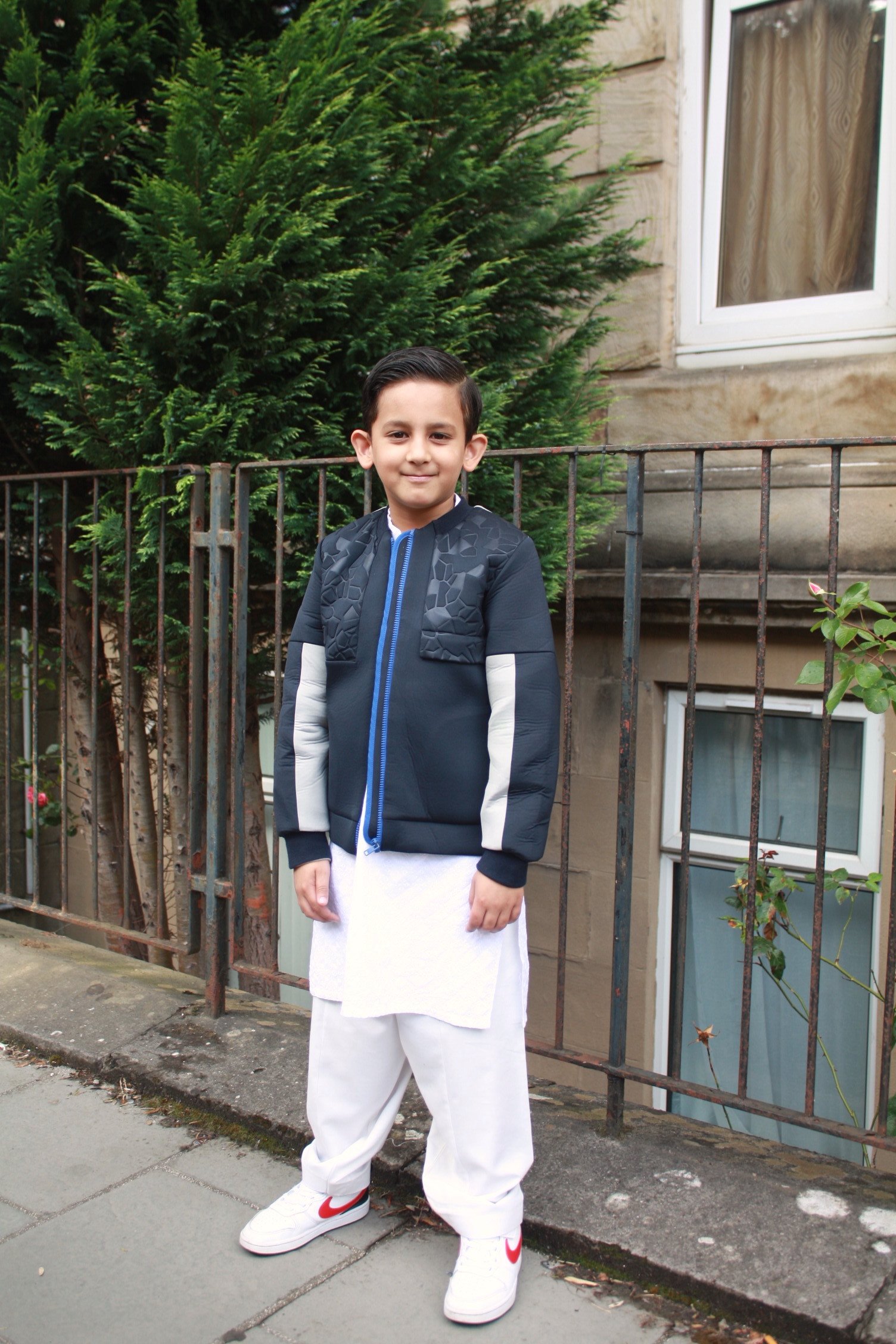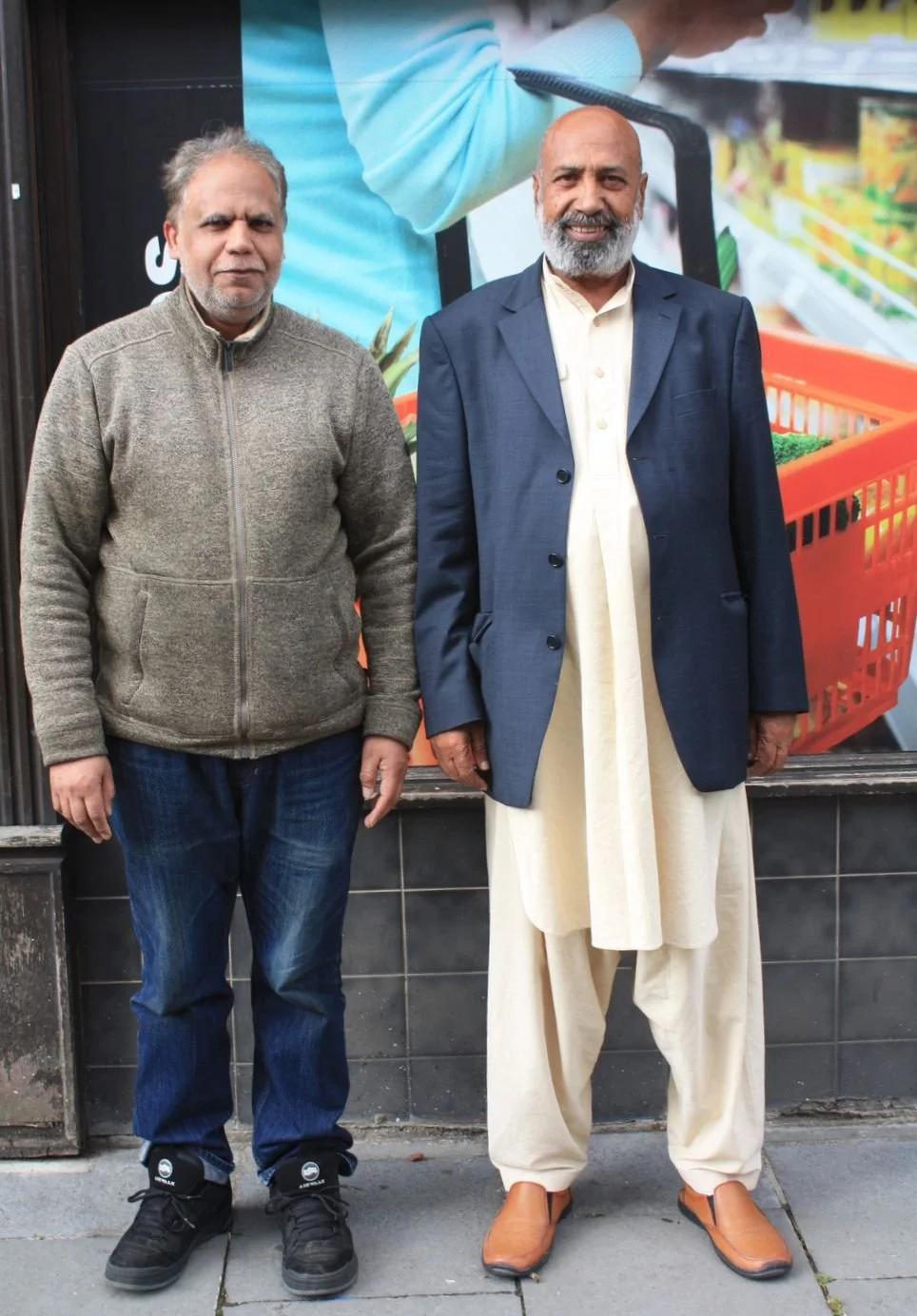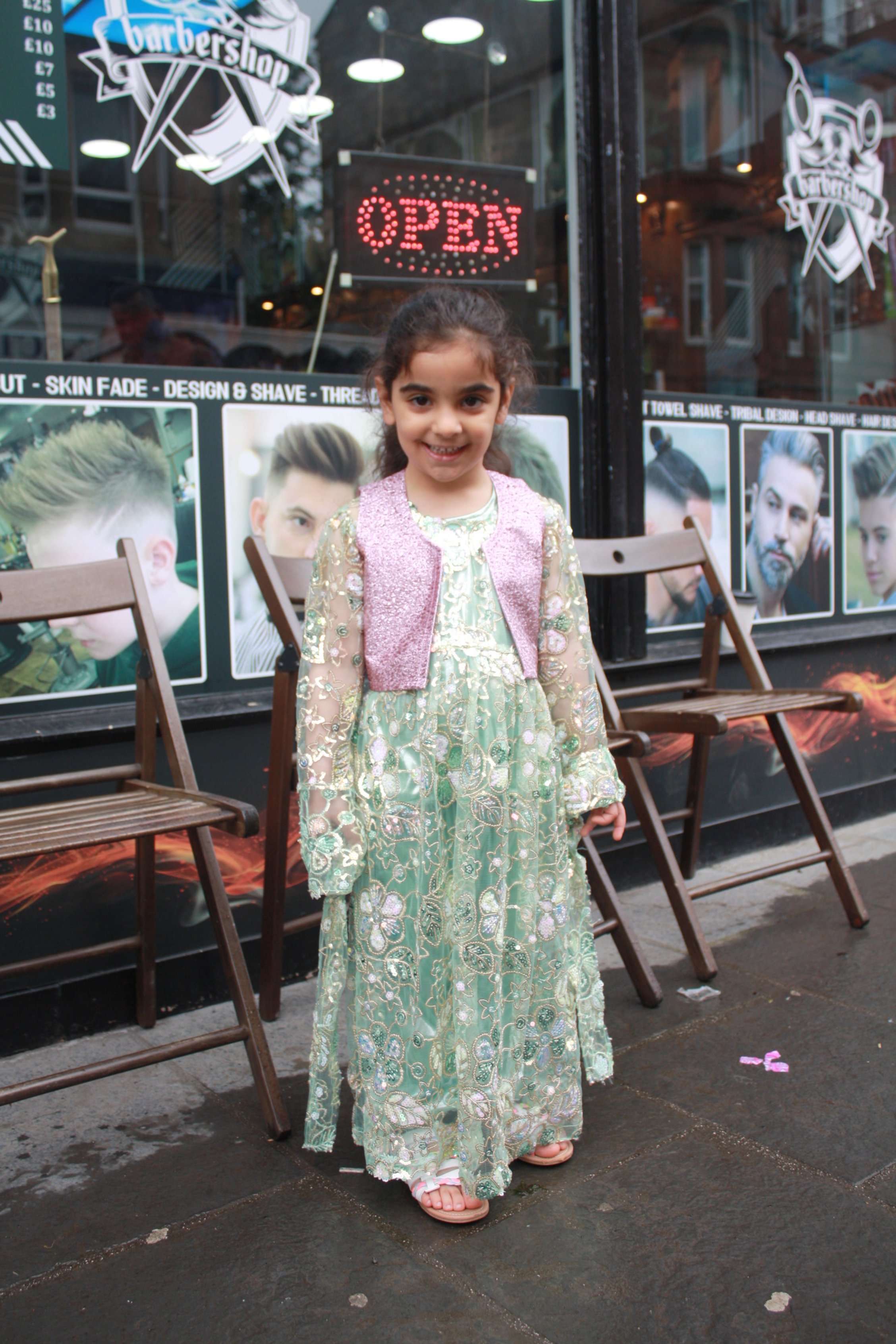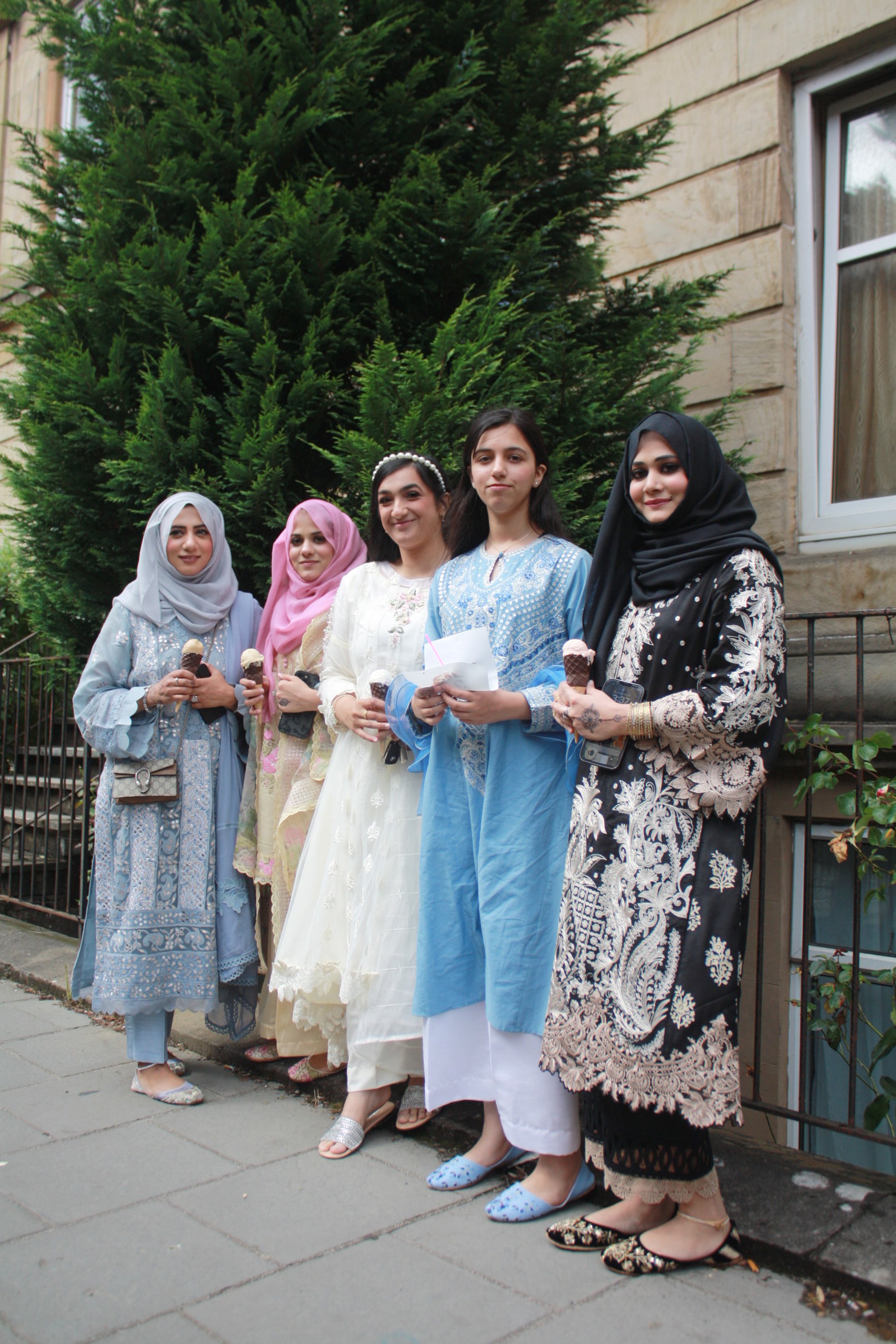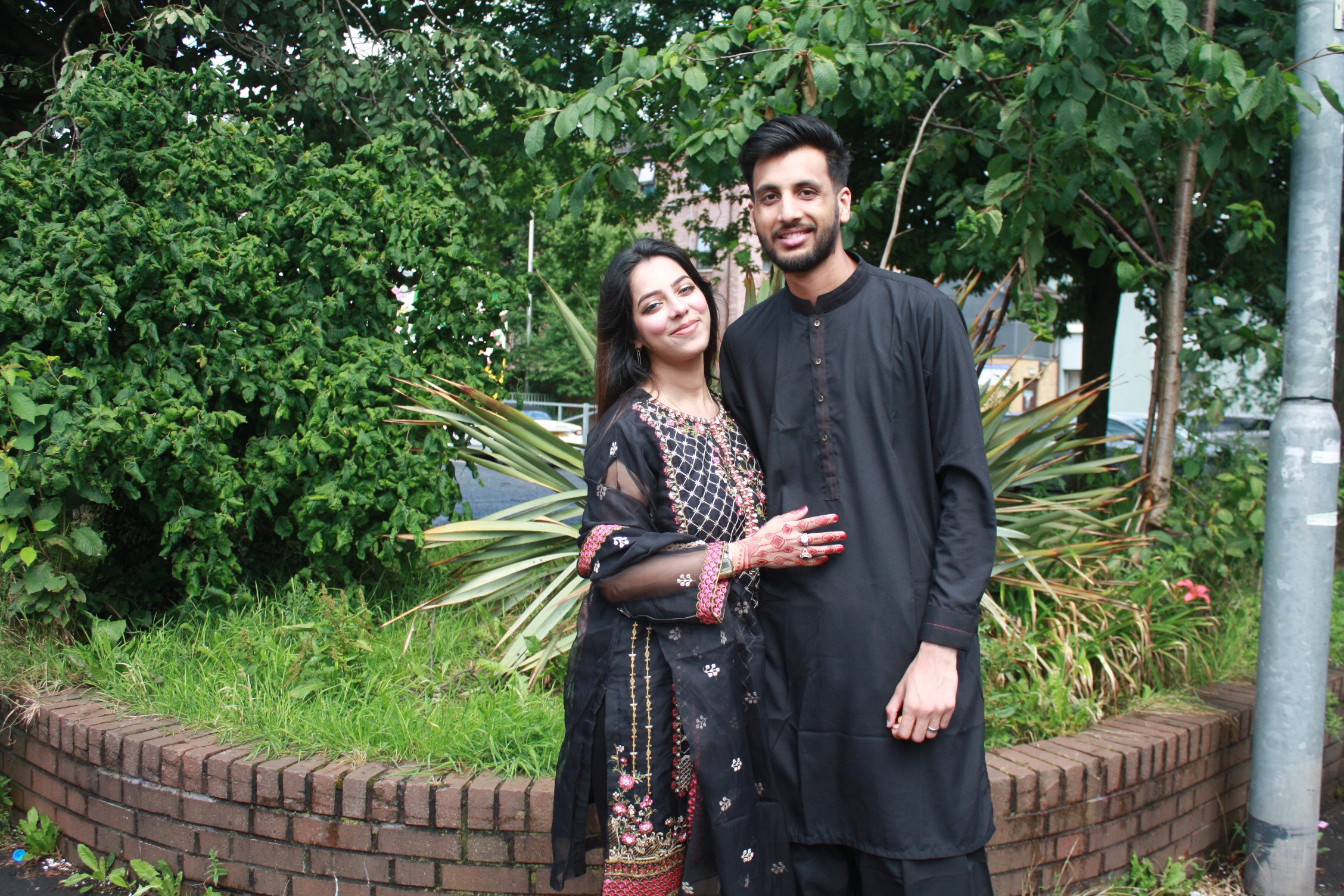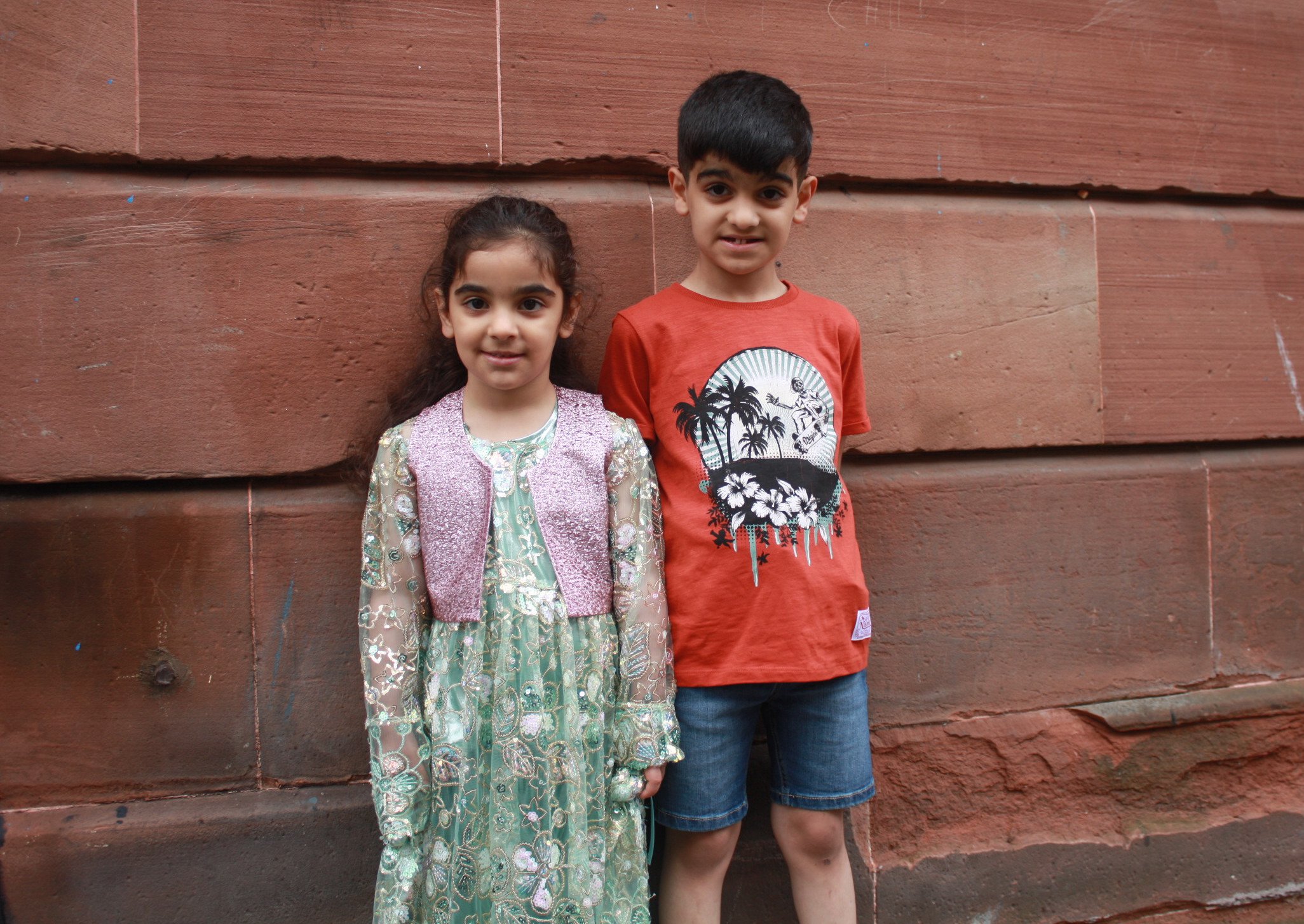Celebrating Eid in Govanhill
You might have noticed people out in the fineries last week. That’s because Eid al-Adha celebrations took place in homes across Govanhill. We went to the streets to capture some photos of people on the special day and chat about what it means to them.
Zeeshan and his wife in Govanhill on Eid al-Adha
Words and Photos by Samar Jamal
What is Eid?
Eid al-Adha, translates to the ‘Feast of Sacrifice’ and is the second major Muslim celebration in the Islamic calendar, after Eid al-Fitr, which is celebrated at the end of Ramadan.
Read more: A Ramadan Like No Other
Eid al-Adha is celebrated on the tenth day of the twelfth month of the Islamic calendar, Dhul Hijjah. This Eid also takes place towards the end of the Hajj pilgrimage which millions participate in each year.
How do people celebrate Eid in Glasgow?
Similarly to Eid al-Fitr, Eid al-Adha is a time of celebration spent with friends and families. You put on your best clothes, go to mosque for Eid prayer and later enjoy a feast with family.
However, on Eid al-Adha there is one big difference. Muslims, who are financially able, are required to make an animal sacrifice and distribute a portion of the meat to those who are less fortunate, their neighbours and family. The sacrifice is also known as qurbani and it is in honour of the Prophet Ibrahim’s actions. The Quran narrates that the prophet was asked by God to sacrifice one of his sons but upon doing so God had placed a sheep in his place.
Eid al-Adha is a four-day celebration but many people designate one day to celebrate the occasion. We spoke with Govanhill residents about how they spend Eid. It is a practice that people from various cultures celebrate, however, we found that many customs are shared amongst communities.
How Muslims in Govanhill Celebrate Eid
For Ghulum, who is from Pakistan, it is a day of remembrance and laughter:
We make dua (prayer) for our loved one, and we remember the people that aren't here with us anymore. And we just talk gibberish and have a laugh, you get to see everyone, which is really nice because as you get older you don't get that as much.
Read more: Meet The Volunteer – Ghulum Wali
Kamal, who is from Kurdistan, explains that Eid is also an opportunity for forgiveness and a chance to reconnect with loved ones: “Before Eid, maybe I’m not speaking to my family because of a small problem, but when Eid comes, it is cleared. We give each other a hug and apologise and from that day it’s finished.”
For many it's also a day to indulge and take a break from daily routines, Warda, who is Bengali, explains:
I always make sure that we go out for food on this Eid. It’s a lot of stress and work cooking for so many people. We had dinner at home last Eid so this Eid we will go out and eat. We still keep it traditional and go somewhere desi [from our country] but it means you don’t have to be cleaning at the end of the day.
This can be particularly needed for those who have been fasting. Although Eid al-Adha is not a celebration to mark the end of fasting, like Eid al-Fitr, it is recommended for Muslims to fast in the last ten days of Dhul Hijjah. Hadiths narrate that these last ten days are more blessed than any other day in the Islamic calendar, encouraging many Muslims to fast during this period.
To learn more about Eid al-Adha and its origins click here.

